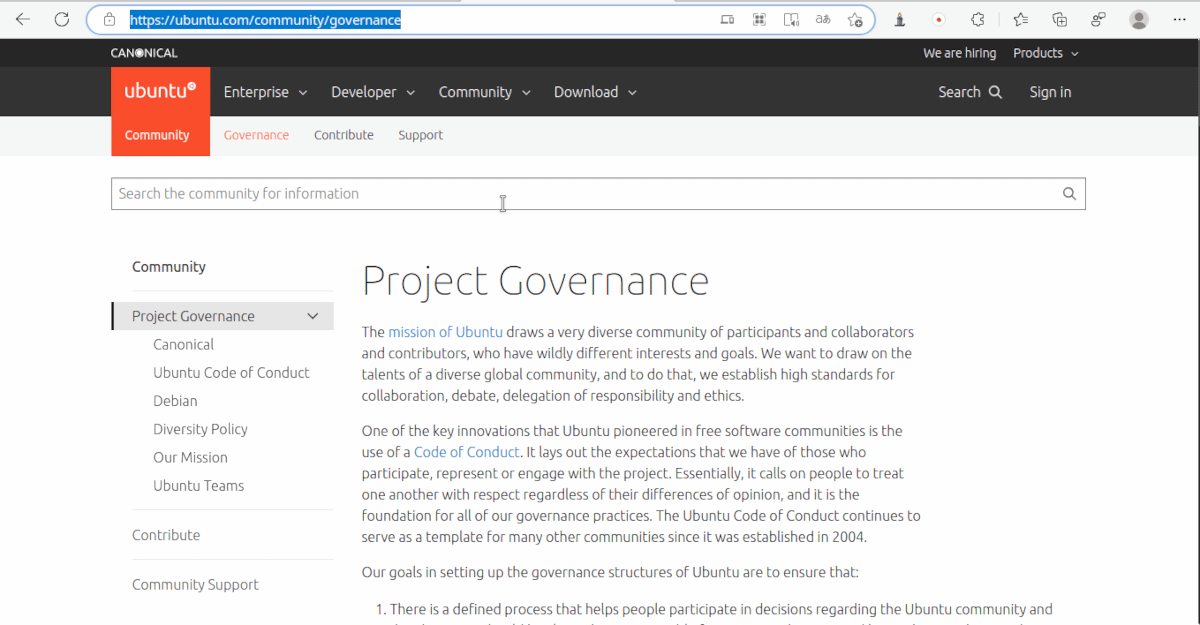
A few days ago my partner Pablinux told them his experience going back to Ubuntu after 4 years. In a sense I followed the reverse path. I installed a derivative distro and that confirmed my opinion that any Ubuntu derivative distro made by someone else is much better than the official one. That is the reason for the question then. Is Canonical the main problem of Ubuntu?
I'm going to preempt the typical hater comment that the good things about Ubuntu come from the Debian work. I don't believe it, my main complaints with the official version is its utter disrespect for the opinions and needs of the end user and that is a feature 100% inherited from the Debian community (with which it has developers in common) and shared with other open source projects like GNOME.
What's this all about?
Last year my desktop computer stopped working and no tech support could find the cause. I spent my time alternating between leftover teams of friends of all ages and abilities. Some branded and some not.
Depending on the resources I switched between Ubuntu, Ubuntu Mate and Lubuntu always without problems. Someone recently gave me a Lenovo 320AIP and the first thing I tried was to install Ubuntu 23.04 (A distribution in the testing stage) Halfway through the process it showed a small print message saying Installation failed. I try then with 22.10, the current version. The message in this case is that it could not be installed Bootloader.
A search on Launchpad shows that it's a long-reported bug that no developer was interested in fixing. The proposed solution was to copy the boot files from another installation. A more general search on Google told me that it was enough to disable Secure Boot and opt for Secure Boot instead of UEFI. In the comments, many users also stated that Pop!_OS worked great with this model, so I decided to download it.
Is Canonical the main problem of Ubuntu?
Pop! _OS is the distribution developed by the computer manufacturer System76 is based on the latest stable version of Ubuntu and uses a customized version of the GNOME desktop. By default it works with the DEB and Flatpak formats, although it is possible to add support for Snap. The installer is really intuitive and the distribution itself is very nice to use. The app store works much better than the GNOME Software Center.
I use Ubuntu Studio and have used Ubuntu Cinnamon, LinuxMint, Ubuntu Budgie, and KDE Neon in the past, plus a few quick steps through LinuxMint. They all have two things in common. They are excellent distros and are much better (Of course in my opinion) than the original version.
I am convinced that the explanation of the Ubuntu problem is found in this page in which the form of organization of the community and its relationship with Canonical is explained.
On the one hand, it tells us that:
Ubuntu's mission appeals to a very diverse community of participants, collaborators and contributors, who have very different interests and goals. We want to harness the talents of a diverse global community, and to do so, we set high standards for collaboration, discussion, accountability, and ethics.
But below it clarifies:
In fact, necessary decisions are made, even when there is no clear consensus among the community. There is only one way to appeal or escalate a decision when necessary.
Ubuntu Community Council
Ubuntu's social structures and community processes are overseen by the Ubuntu Community Council, which manages nominations and elections for Ubuntu boards and councils.
And, just to be clear:
This is not a democracy, it is a meritocracy. We try to operate more on consensus than on votes, seeking the agreement of the people who will have to do the work. Mark Shuttleworth, as the self-proclaimed benevolent dictator for life (SABDFL), plays the happily undemocratic role of patron of the project. youYou have the ability, with respect to Canonical employees, to ask people to work on specific projects, feature targets, and specific bugs.
It also has a casting vote in the Technical Board and in the Community Council, in case it is put to a vote. This ability is not used lightly.
By itself the word Meritocracy should make our hair stand on end. I have nothing against merit, but in the open source communities it usually means that you only get promoted by doing what those who vote for new members consider meritorious. And that's usually not what makes the end user happy.ino some impressive display of programming skill.
But, in practice there is not even a consensus, we end up doing what Shuttleworth says, and Shuttleworth has shown that he is a Steve Jobs without the charisma of Steve Jobs, makes arbitrary decisions without any justification, but is unable to sell it to the public.
I had a more or less similar experience, in fact I am not an advanced user in this Linux thing but I know something about how to install the systems, I have 3 somewhat old computers in my house and I could not install Ubuntu in its different versions on any of them, it always gave mistake in something However, with other Ubuntu-based distros everything works, I have Linux Mint 21 and ZorinOS 16 installed. Regards